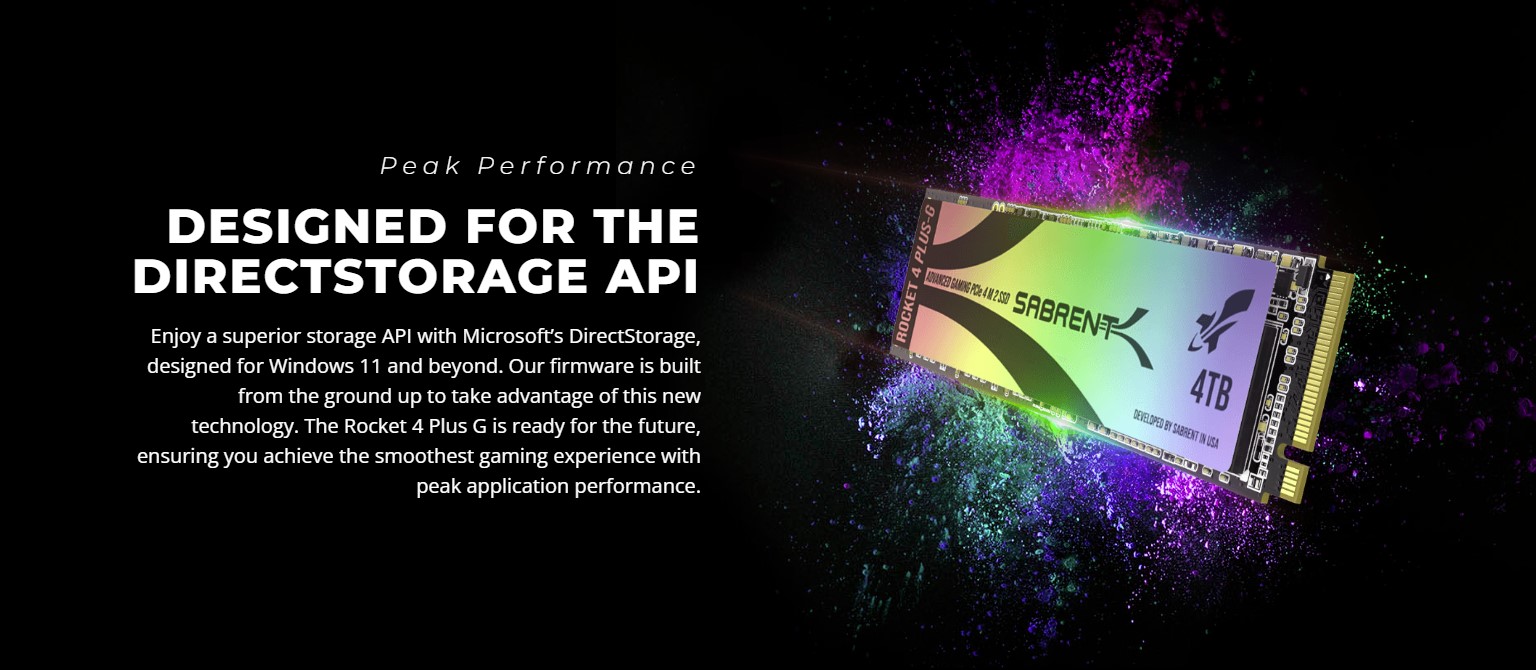Sabrent Creates DirectStorage Focused NVMe Gaming SSD
Sabrent has announced a new NVMe SSD called the Rocket 4 Plus G, featuring a brand new piece of SSD firmware optimized for DirectStorage workloads. Sabrent markets the drives' firmware as 'O2,' which appears to be what Phison calls its 'I/O+' firmware that it will provide to its OEMs, like Sabrent, for their drives. This makes the Sabrent Rocket 4 Plus G the first DirectStorage-focused SSD we've seen. You can see how this firmware performs in our The DirectStorage Advantage: Phison IO+ SSD Firmware Preview article.
The DirectStorage API will enable supporting games to load in a few seconds, but the new API will also enable broader improvements in all types of storage-bound tasks. The first DirectStorage-enabled game, Forspoken, won't arrive until January 2023, though.
Sabrent hasn't shared the full specifications, but it did share pricing, storage size, and speed. The Rocket 4 Plus G will start at 1TB with a maximum capacity of up to 4TB. But the prices are high; the 1TB model starts at $169.99, the 2TB is $299.99, and the 4TB is at an eye-watering $699.99. Thankfully you are getting a fast drive with that money, with speeds of over 7GBps thanks to TLC 3D NAND flash.
Optionally there is also a $29.99 heatsink if your drive needs additional cooling power. Ironically this makes the drive (along with the 7GBps speeds) an excellent candidate as a secondary game drive for the PlayStation 5.
Sabrent advertises its O2 firmware with a lot of bells and whistles. Sabrent says the new O2 firmware has been tweaked with superior interoperation for improved performance, no compromises to longevity, and ground-up support for Microsoft's DirectStorage API.

Microsoft's DirectStorage API went online just a few months ago and promises to increase gaming performance in supported games. The tech allows the SSD to stream data directly to the graphics engine through the PCIe bus without requiring a detour to the CPU and internal memory for decompression. This tech should seriously reduce loading times of games and improve texture and asset streaming for games that require this type of streaming on the fly, such as Call of Duty Warzone.
Microsoft hasn't announced any strict NVMe SSD requirements for DirectStorage, other than you'll need an NVMe SSD to utilize the technology. However, as our tests show, optimized SSD firmware can extract massive gains in performance for these types of workloads.
Get Tom's Hardware's best news and in-depth reviews, straight to your inbox.

Aaron Klotz is a contributing writer for Tom’s Hardware, covering news related to computer hardware such as CPUs, and graphics cards.